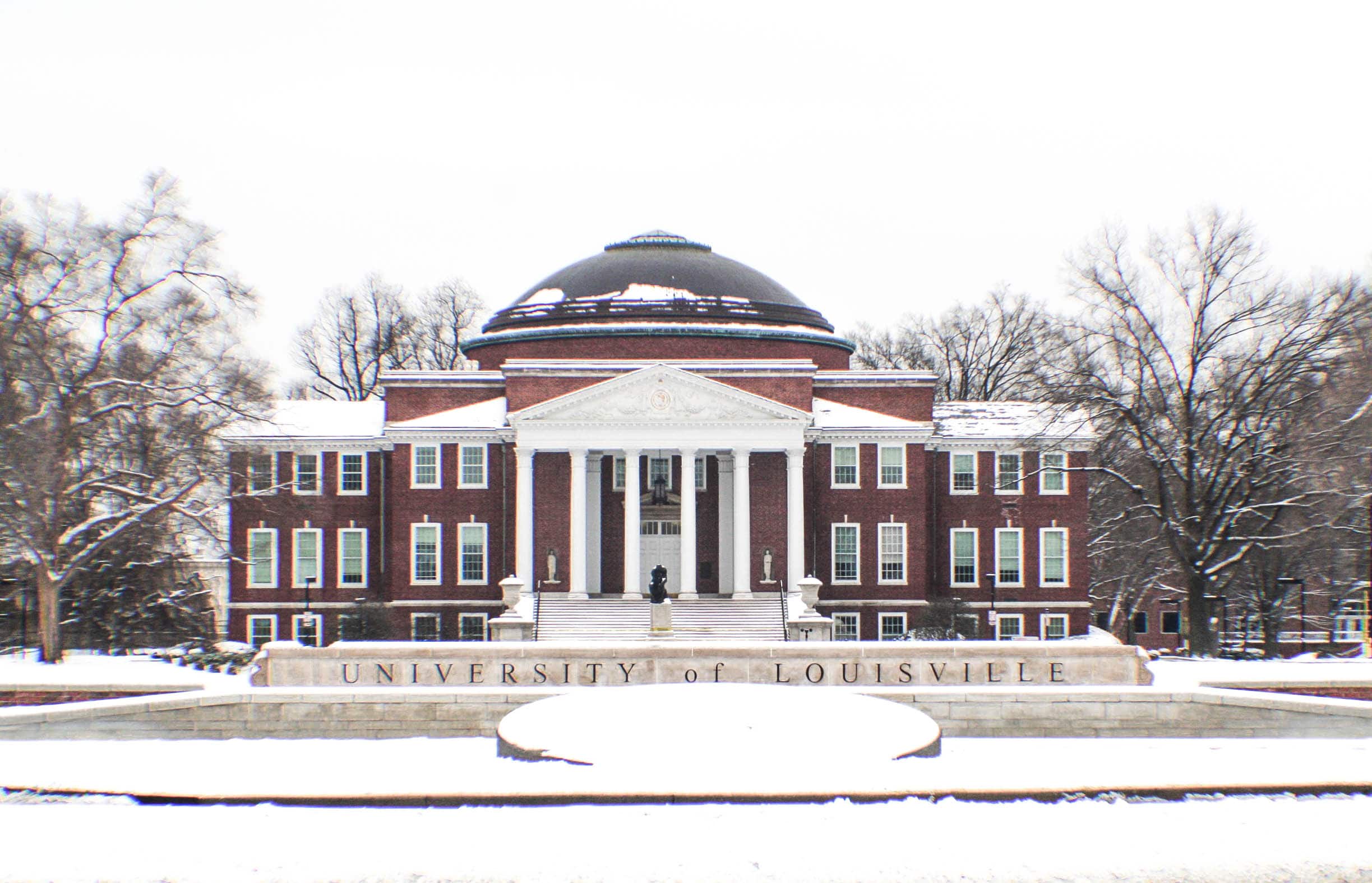By Olivia Krauth–
Governor Matt Bevin’s proposed budget immediately hits U of L, slicing $6.3 million from this year’s budget using executive order.
If passed as is, Bevin’s budget will also cut $12.6 million for the next fiscal year.
Tuesday night, Bevin presented his budget for fiscal years 2017 and 2018. If passed, the budget would apply a nine percent funding cut to most state programs, including higher education. Those programs will also see a 4.5 percent cut immediately with an executive order.
“We’ve got to get our financial foundation solid. We just do. We don’t have any alternative,” Bevin said.
For fiscal year 2017, programs will get nine percent less of their current state appropriation – a $12.6 million cut for U of L. Fiscal year 2018 will see the same amount of funding as FY 2017 without additional cuts.
President James Ramsey released a statement on the budget Wednesday, saying he was “disappointed.”
“We are disappointed we will take continued cuts in the next biennium as well as a current year cut (over the next 30 months),” Ramsey said. The challenges we face in continuing to move forward to meet our statutory mandate, given sixteen budget cuts over seventeen years, have and will take a toll on our ability to move forward.”
U of L was set to receive $140 million in state funds the current fiscal year. U of L chief financial officer Harlan Sands said U of L was “still assessing” where the cuts impact.
State appropriation is currently the fifth-highest source of funding for U of L. Since FY 2002, state funding has been cut by 5.2 percent. State funding for higher education has been cut every year since 2008. The cuts have led to universities raising tuition, which a current state bill is trying to stop with a tuition freeze.
The proposed budget cuts do not affect student financial aid. The proposed budget dedicates all lottery proceeds to education, including KEES funding, need-based aid and tuition coverage for the Kentucky National Guard.
Money saved by the cuts will go to state public pension plans, increasing their budgets by more than $800 million in the next two years. “We are in a pickle,” political science professor Jason Gainous said. The pension plans need money, but so do universities.
“There are going to be cuts,” Gainous said. “There are no if’s, and’s or but’s about that.”
U of L is also set to gain from the budget, receiving $250 million in restricted funds to finance capital projects. Restricted funds do not come from the state’s general fund like the state appropriation.
Projects getting funding include the $35.98 million Institute for Product Realization, which will be part of the Belknap Research Park next to Speed School. Renovations to the J.B. Speed School and Health Sciences Center are also included on the list. A center for creative studies, equipped with a foundry and mold-making shop, also made the list for $10.2 million. Six athletics projects also made the list.
The Democratic-led state House will vote on the budget first, followed by the Republican-led Senate if passed. Gainous does not believe the budget would pass the House without modification.
Tuition raises are voted on after the spring semester ends in May or June. The final budget will go into effect July 1 when the new fiscal year starts.
Gainous said the budget ultimately stuck to Bevin’s campaign rhetoric, which “undervalued liberal arts education.”




